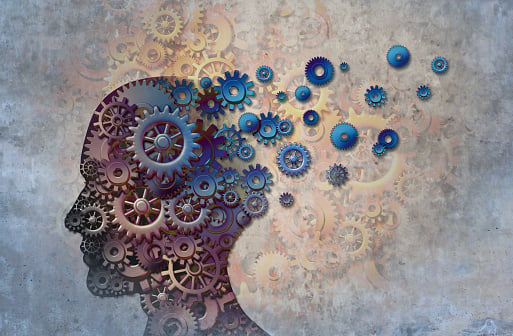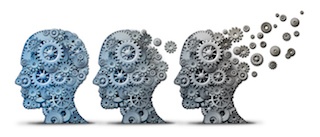Maria is an active, independent older adult. She lives alone and on her weekly trip to the grocery store, she finds that she has forgotten where to find the bread. During a subsequent trip, Maria enters the grocery store, but has forgotten what she came to the store to buy. Are Maria’s experiences the process of aging or could something more sinister be at work?
If you’re like most older adults, you probably give a lot of thought to how your memory and brain are functioning. And if you experience forgetfulness, you might even think you’re at risk for developing Alzheimer’s or dementia.
Forgetfulness: What’s Normal
Changes happen throughout your body as you age and your brain is no exception. You might notice occasional forgetfulness or that it takes you longer to learn new information, but these changes aren’t anything to be concerned about. In fact, scientists have found that given enough time, older adults do as well as younger people on complex memory tests.
3 Normal Memory Problems
As you age, memory changes may become more pronounced, but unless your changes are extreme and persistent, you should not be worried about Alzheimer’s or other memory-impairing conditions.
If you experience any of these conditions, take heart that there are likely no disease processes happening in your mind.
Absentmindedness: This kind of forgetfulness happens to all of us regardless of age and occurs when you don’t pay close enough attention to a conversation or instructions. Absentmindedness also applies to remembering to do things at prescribed times, like taking medication or attending recurring doctor’s appointments.
Blocking: This happens when the answer to a question you’ve been asked is on the tip of your tongue, but you just can’t recall it. Or you can’t remember someone’s name. Scientists think these kinds of memory blocks become more common as we age. Sometimes this happens because there are two competing memories and one of them is so intrusive that it blocks your ability to think of the memory you want to recall.
Misattribution: This happens when you remember part of a situation correctly but misattribute some kind of detail like the place, time or who was involved. Misattribution can happen because you absorb fewer details as you age.
When to Ask for Help
If you’re concerned about your changes in memory, talk to your doctor. Your doctor may be able to diagnose a temporary problem that could be causing memory impairment — like certain infections — or adjust your medications. He or she may also do a complete physical or refer you to a specialist.
It’s important to remember that if you’re experiencing any new changes in memory that concern you — whether they’re a normal part of the aging process or not — to talk to your doctor.













